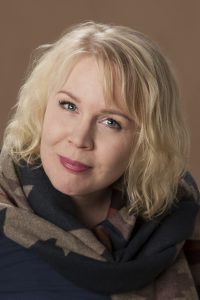
Karoliina Lummaa, collegium researcher, TIAS
Climate change, biodiversity loss and other global environmental crises pose a monumental challenge to societies. We are now facing the situation where societies need to be reconstructed ecologically within the next ten to thirty years, and the reconstruction has to be implemented in ways that are socially just, culturally imaginable and economically feasible.
The ecological, social, cultural and economic facets of societal development are elemental in the sustainable development framework, which is nowadays broadly adopted in politics and business policies, nationally and internationally. In 2015, all United Nations member states agreed on 17 Sustainable Development Goals. The concept of sustainable development was first introduced by the so-called Brundtland Commission (initiated by the United Nations and chaired by Gro Harlem Brundtland) in their report Our Common Future (1987), where sustainable development is defined as “development that meets the needs of the present without compromising the ability of future generations to meet their own needs”.
Sustainable development will be topical for the staff and students of the University of Turku, as it is one of the focal themes in the new strategy of our university. In the coming years we will rethink our research and scientific practices, education and social activities and our everyday campus life in ecological contexts. Right now we are invited to respond to the Viima survey by June 5 and contribute on the sustainability work currently conducted by the university’s Carbon neutrality project group and the Steering group for sustainable development.
Perhaps not surprisingly, Sustainable Futures was also the theme of the first joint event of Turku Institute for Advanced Studies and Turku Collegium for Science and Medicine. On February 27, researchers from TIAS and TCSM gathered together to address questions concerning sustainability. After opening words by TIAS director Martin Cloonan, Development Specialist Marjaana Suorsa gave a lecture on sustainability practices at the university of Turku. Paavo Järvensivu and Tero Toivanen from the BIOS Research Unit presented on ecological reconstruction, which paved the way for a multidisciplinary workshop called “Scholarly visions on sustainable societies”.
The aim of the workshop was to initiate interdisciplinary discussions on ecological sustainability as a shared, societal goal. Gathering together researchers from diverse fields enabled the participants to learn how sustainability issues are addressed in research and education across the diverse disciplines. The workshop offered its participants an opportunity to share sustainability-related problems or blind spots in their research fields, but it also opened up a multidisciplinary space for imagining and inventing better practices in the academia and wider in society.
Due to the importance and challenging nature of the subject, discussions were lively. Researchers have various sustainability-related challenges in their work, ranging from frequent travel and use of materials and equipment to the more conceptual and practice-related questions concerning interdisciplinary environmental research and communication. And the academia is only one (albeit a big and important) part of our lives; each of us has to struggle with everyday choices and the ecological and social aspects involved in them. Some wish for stronger regulation for example with regard to the production and consumption of goods, while others are wary of increasing governmental power.
The date of the Sustainable Futures event, February 27, was also the time of centenary celebration of the University of Turku. During the day we took part in the celebrations, reflected on the past and thought about the next 100 years. An equally compelling topic throughout the day was of course COVID-19 and its social, economic and political effects. These two additional topics probably helped us to envision possible futures and to recognise the importance of doing so.
Research entails care for the detail, focus on facts and sensitivity for history. Scientific knowledge is accumulative, it is based on careful measuring, analysis and interpretation of data, and it is communicated using specific terminology, concepts and discourse. Imagining a better, more sustainable future might not be the most common of scientific or scholarly activities, but it is probably something we need to do more in the coming years – preferably cross-disciplinarily. Sustainability is, after all, a goal that all disciplines can contribute to
